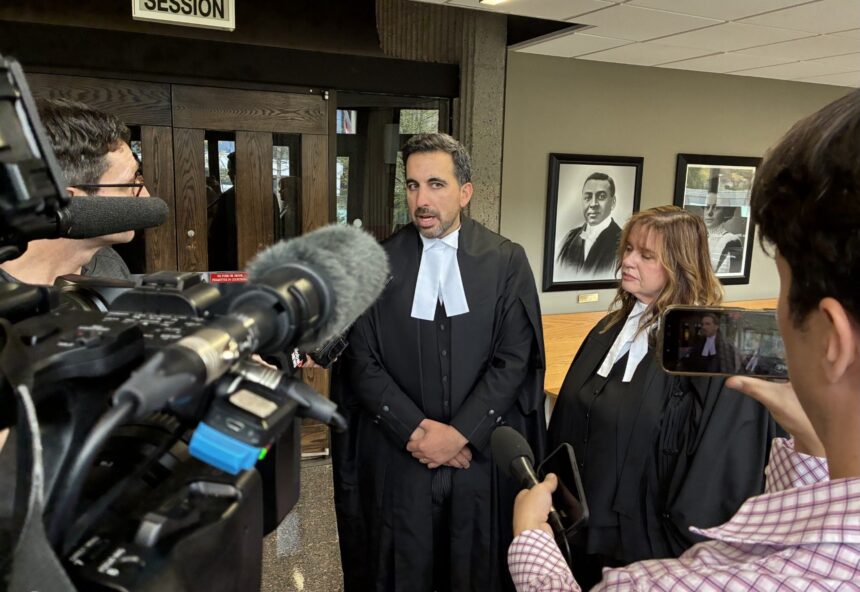Article contentSecurity and cellphone videos entered into evidence at the trial show that Levy had Sawyer in the chokehold for about two minutes. But Levy insisted he was not actually squeezing Sawyer’s neck for most of that time and was only holding him until police arrived.Article contentIn closing submissions, lawyer James Giacomantonio said the Crown had not proven his client’s guilt beyond a reasonable doubt on either charge.Article contentGiacomantonio said Levy was a credible witness whose evidence established that he was acting in defence of himself or others when he tried to take Sawyer to the ground and restrain him.Article content“The tragic death of Ryan Sawyer was not a foreseeable outcome,” the defence lawyer said. “It was a lightning strike. It’s a heart attack when you’re shovelling the driveway. In our respectful submission, it’s not a culpable homicide.”Article contentGiacomantonio said his client’s response to the situation was “a reasonable, proportionate use of force, given what he knew, what he believed, and what he had previously done. He was trying to avoid anyone hitting their head, and his goal was to hold (Sawyer) until someone assisted him.”Article contentArticle contentHe said that when police arrived and asked Levy “three or four times over a couple of seconds” to release Sawyer, he let go.Article content“He’s not vengefully holding on to him,” Giacomantonio said. “He’s not trying to hurt him.”Article content Crown attorneys Rob Kennedy and Melanie Perry take questions from reporters Monday after a Nova Scotia Supreme Court judge heard closing arguments at former Halifax Alehouse bouncer Alexander Pishori Levy’s trial on charges of manslaughter and criminal negligence causing death. Justice James Chipman reserved his decision until Nov. 26. Photo by Steve BruceArticle contentProsecutor Rob Kennedy told the court Levy should be found guilty of manslaughter.Article contentKennedy said that what began as a homecoming for the Sawyer brothers ended in a “completely avoidable tragedy.”Article content“Ryan Sawyer lost his life due to … the overzealous, disproportionate and violent actions of Alex Levy,” Kennedy argued. “From the moment that he physically engaged with Kyle Sawyer outside of the Prince Street doors, his fuse was lit. He was ready to fight.Article content“While Kyle Sawyer no doubt regrets shoving Alex Levy that morning, no one would have predicted or expected that an experienced bar security guard like Alex Levy would have applied a sustained chokehold on Kyle’s brother Ryan, ending his life.”Article contentArticle contentKennedy said Ryan Sawyer was “an unarmed, heavily intoxicated young man who at no point threatened … or assaulted Alex Levy before he was choked to death.Article content“What started as a rather minor physical altercation escalated very quickly, primarily due to the disproportionate response from Alex Levy. … (His) response to this physical interaction with Kyle and then with Ryan from start to finish went beyond any acceptable definition of proportionality and reasonableness. At every juncture, Alex Levy’s actions escalated the situation into a more serious one.”Article contentKennedy said the province’s lack of regulations around training for bar security staff workers “does not give a green light to bouncers to use excessive force.Article content“Sadly, it takes tragic cases like this to send a message that this kind of behaviour is intolerable in our community. The public demands more from bar security staff, particularly very experienced ones like Mr. Levy.”
Lawyers make closing arguments at former Halifax bouncer’s manslaughter trial











